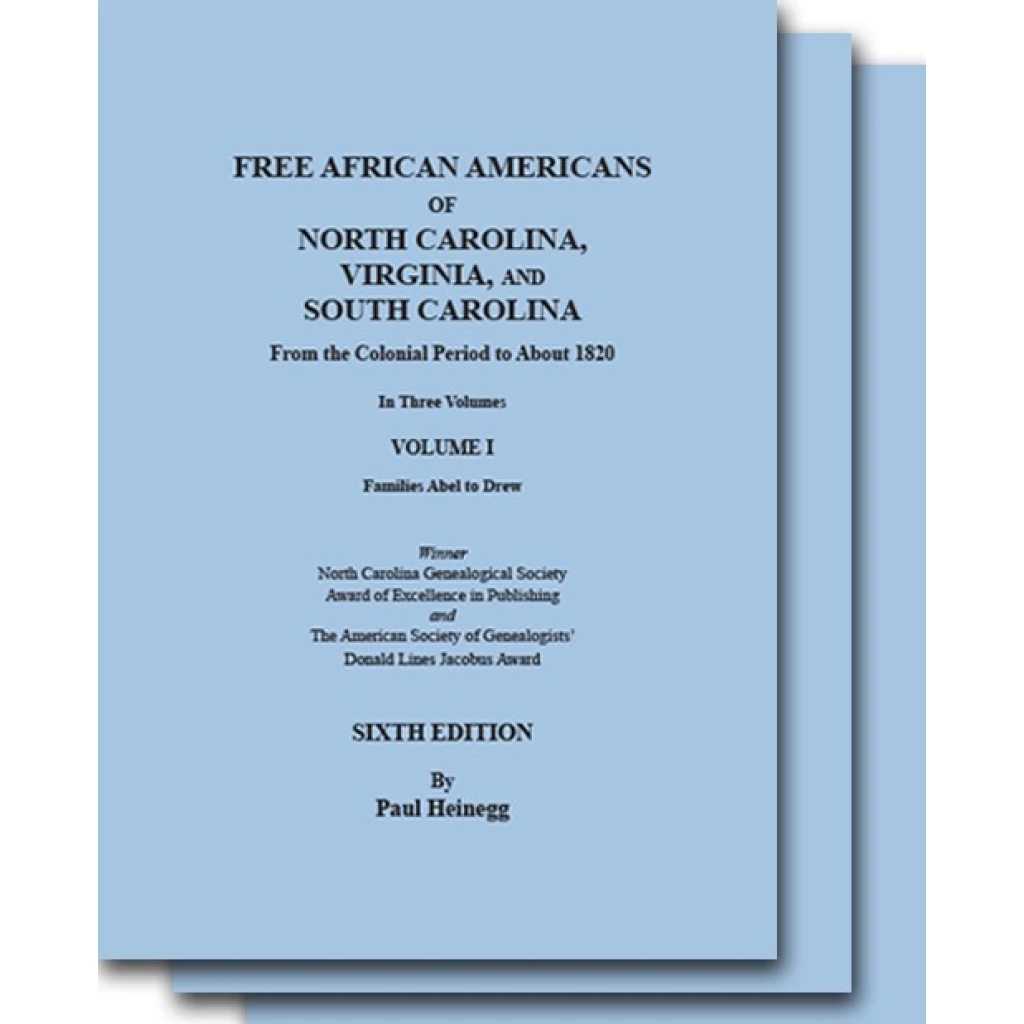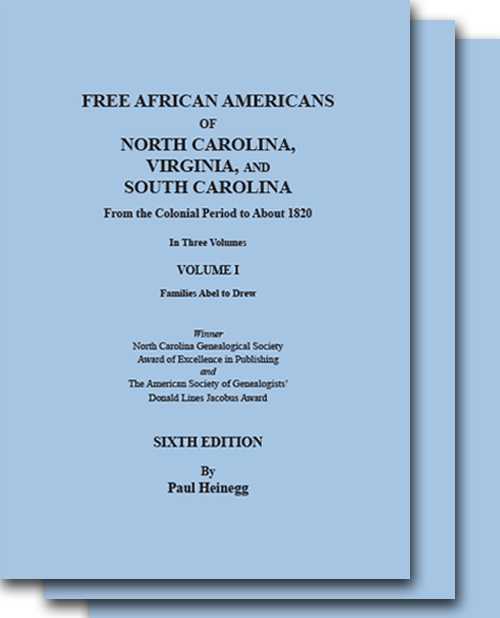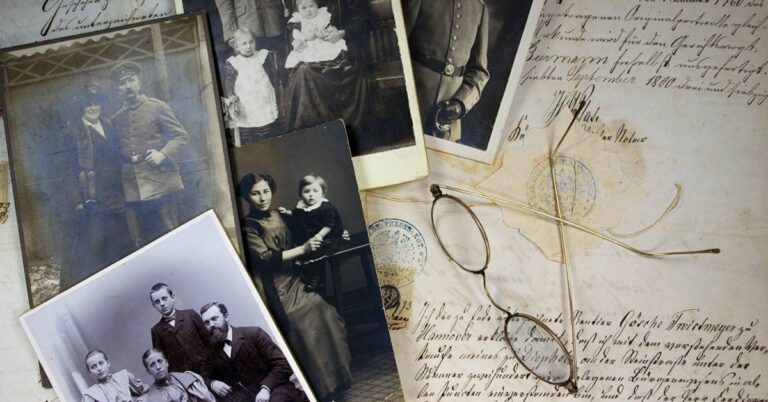
Interview with Paul Heinegg, Author of the New 6th Edition of Free African Americans of North Carolina, Virginia & South Carolina from the Colonial Period to About 1820 (Part One)
Genealogy Pointers: When did you first get interested in African American genealogy? Why?
Paul Heinegg: I was working in Saudi Arabia in 1985, living in a community in the middle of the desert (much like a military compound) with about 200 other U.S. families when a co-worker came back from vacation and told me how he was looking at his grandmother’s photos and realized we were second cousins. We then realized that he had visited his great grandfather, who was my grandfather, at my home in Brooklyn when we were both about 12 years old. He had done some preliminary research, and I promised to do more when I took my vacation. On vacations we stayed in Queens, N.Y., with my mother-in-law. I visited the main branch of the N.Y. Public Library’s genealogical section on 42nd Street. That was about the time “Roots” made genealogy popular among the general population.
GP: What direction or blueprint did you have for how to proceed with your work?
PH: The following year I recounted the aforesaid story to my mother-in-law, an African American from North Carolina, and she asked me to look into her own roots. Our whole family became fascinated when we found that she had relatives who were free before Emancipation. (My wife has an ancestor with the uncommon name of Tann. We found him in the 1850 and 1860 census for North Carolina.) After some research of North Carolina records available in New York, I went to the NC State Archives in Raleigh to do further research. Fortunately, the archives was closed that day, and I had to be content with browsing the shelves of the state library. There I found Weynette Parks Haun’s abstracts of the county court records which contained several decades of colonial history of some of my wife’s ancestors. I realized then that the county court records would be my main focus.
Once my research was seriously underway, I employed the following methodology:
- determine all the names of the families counted as “other free” (non-white) in the 1790-1820 census and colonial tax records for North Carolina and Virginia.
- read all the colonial and early national court records for North Carolina
- write the family history of all those families
- read all the colonial and early national court records, tax lists, free Negro registers, newspapers, church records, etc., for Virginia
- rewrite the family histories based on that new information
Following this process, I ran across new family names all the time. And since people are often not identified by race in the records, a rerun of that entire process turns up new information (as it did for this 6th edition).
About 2015 the Library of Virginia started going through their collection of loose county papers (not in bound volumes) and published over 16,000 digital images on their African American Narrative site. Those images are one of the new sources for this edition.
The other major source for this edition are the files of all the Virginia county court, wills, deeds, and tax records that I borrowed from the Library of Virginia on interlibrary loan for the previous edition and was able to go through again right on my computer thanks to Familysearch.org. They also put all the North Carolina deeds, wills, estate records, apprenticeship records, and payment vouchers for Revolutionary war service on digital media accessible from home computers.
GP: It’s my understanding that you did not originally intend to look into so many Free African American families. How/why did that change?
PH: Once I had a general picture of my wife’s ancestry, I became more interested in the fact that about 10% of the free population of her home county of Northampton, North Carolina, was counted as “other free” in the 1800-1810 census. I have always enjoyed solving puzzles, and the puzzle of the origins of such families consumed me for the next 3 decades.
GP: You were living in Saudi Arabia when you published several of the earlier editions of the book. How were you able to get your hands on the information you needed? Wasn’t that very difficult?
PH: Distance was a barrier, but not an insurmountable one. I bought copies of the court records that Weynette Haun had abstracted and purchased the microfilm copies of all the other colonial court minutes and colonial tax records from the NC State Archives for $10 a reel. I also rented microfilm of the early N.C. and Va. census, marriage and Va. parish registers from a company called Heritage Quest, which sent their microfilm to me in Saudi Arabia.
I started by making files of all the census records and tax records so that I would recognize the family names when reading through the court records. (Many colonial and early national records don’t identify people by race unless they applied to the case law—e.g., someone not paying the discriminatory tax on their wives, for example.)
At that time I had no intention of publishing. It was just a puzzle to be solved for my own satisfaction. I made individual files of all the families and put them in general genealogical format to put all the information in perspective. After I had over 300 pages of family records, I realized that I had to share this and with great difficulty set about learning to write about them. (I am an engineer, more comfortable with equations than sentences.)
To be continued April 26, 2022

Free African Americans of North Carolina, Virginia, and South Carolina, From the Colonial Period to About 1820. Sixth Edition, Three-Volume Set
The Third Edition of Paul Heinegg’s Free African Americans of North Carolina and Virginia was awarded the American Society of Genealogists’ prestigious Donald Lines Jacobus Award for the best work of genealogical scholarship published between 1991 and 1994. The new Sixth Edition is Heinegg’s most ambitious effort yet to reconstruct the history of the free African American communities o…





